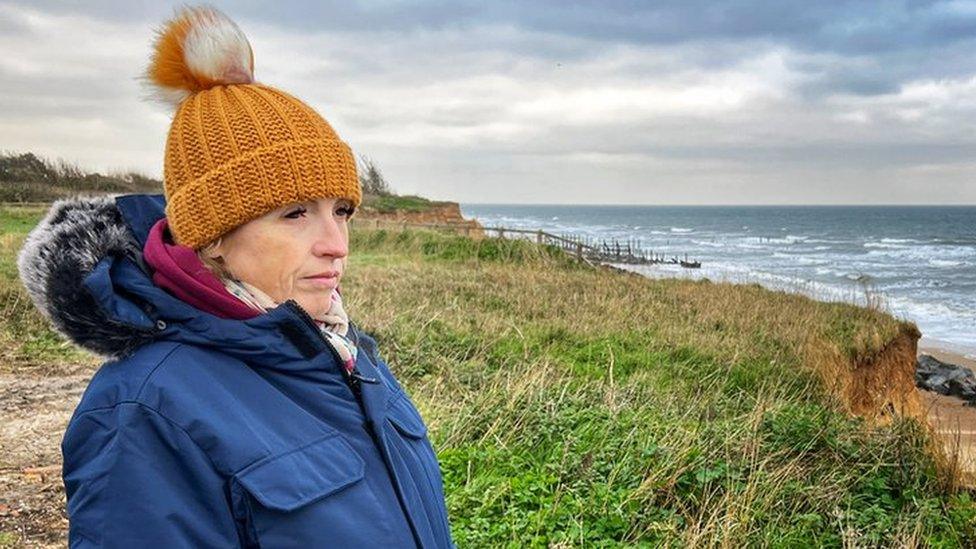Work to get under way on £2m sea defence project
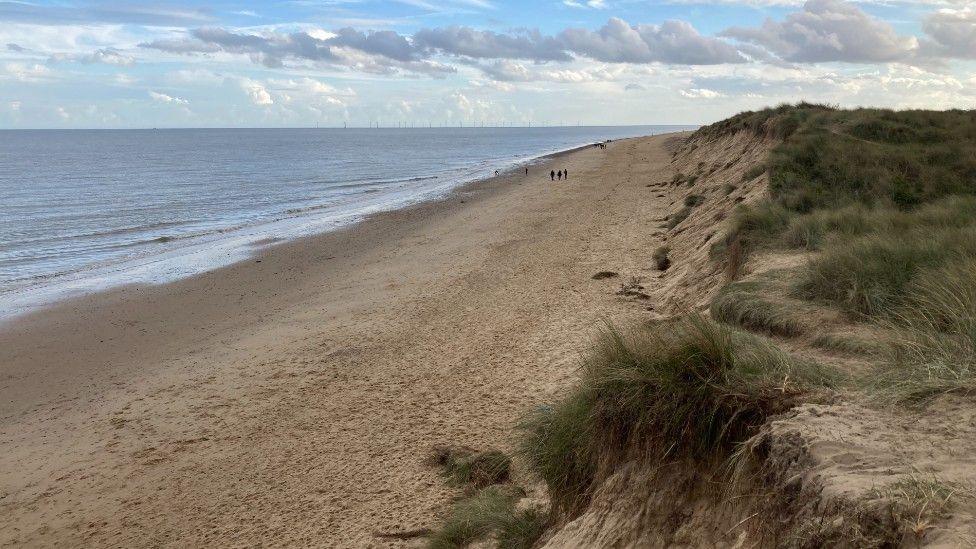
The Environment Agency said 26 groynes along the stretch of coastline between Happisburgh and Winterton were "not fit for purpose"
- Published
A project costing £2m to repair damaged sea defences along a 10-mile stretch of coastline is set to begin.
The project aims to fix important frontline defences which prevent erosion of the beach between Happisburgh and Winterton in Norfolk.
Mitigation measures have been taken into consideration to avoid disturbing the grey seal colony at Horsey and little terns and ringed plovers.
In a report, the Environment Agency said the repairs would also "prevent damage to the Broads".
The Environment Agency said 26 groynes were in urgent need of restoration after becoming "not fit for purpose" due to years of being weathered by the North Sea.
The project is part of a series of works to protect the stretch of coastline which encompasses beaches at Sea Palling and Horsey - both home to colonies of grey seals.
The Environment Agency said in a report: "This is a virtual sea defence for the many inhabitants of this area of Norfolk and also acts as a barrier to prevent damage to the Broads."
Repairs will see the existing timber and steel groynes demolished with excavations of the beach to be filled with rock armour before new groynes are installed.
The work will be carried out during the summer to avoid disturbing the grey seal colony which inhabits Horsey during October and the spring, according to the Local Democracy Reporting Service.
Mitigation measures will also see that little terns and ringed plovers which nest in the dunes are not disturbed.
It is expected that the project will be completed by the end of October 2026, with preliminary work already under way.
Follow Norfolk news on Facebook, external, Instagram, external and X, external. Got a story? Email eastofenglandnews@bbc.co.uk, external or WhatsApp us on 0800 169 1830
- Published13 October 2023
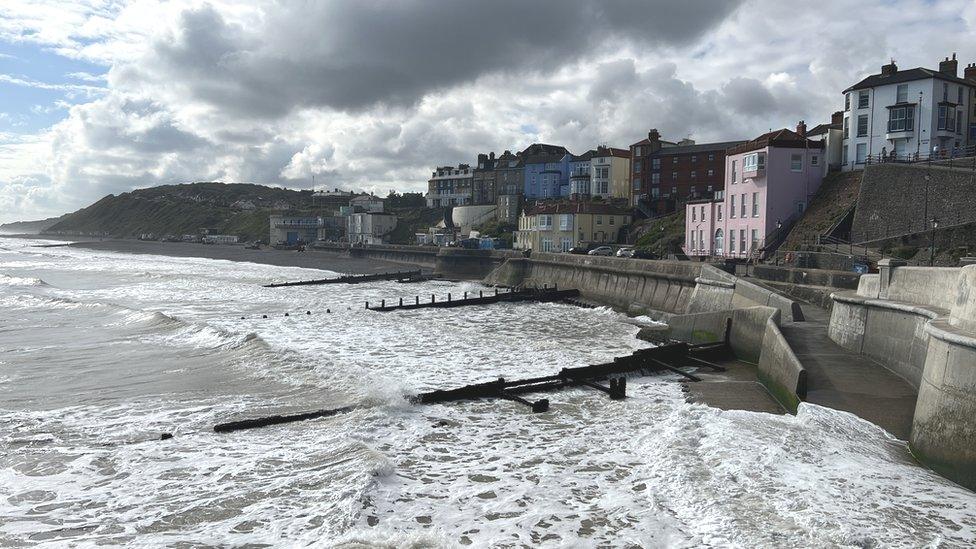
- Published6 December 2023
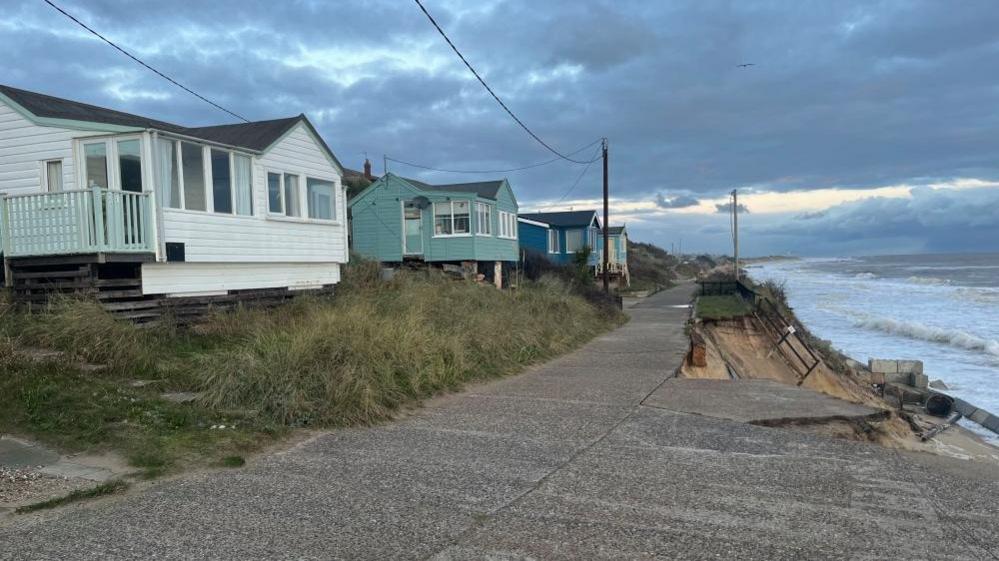
- Published17 March 2023
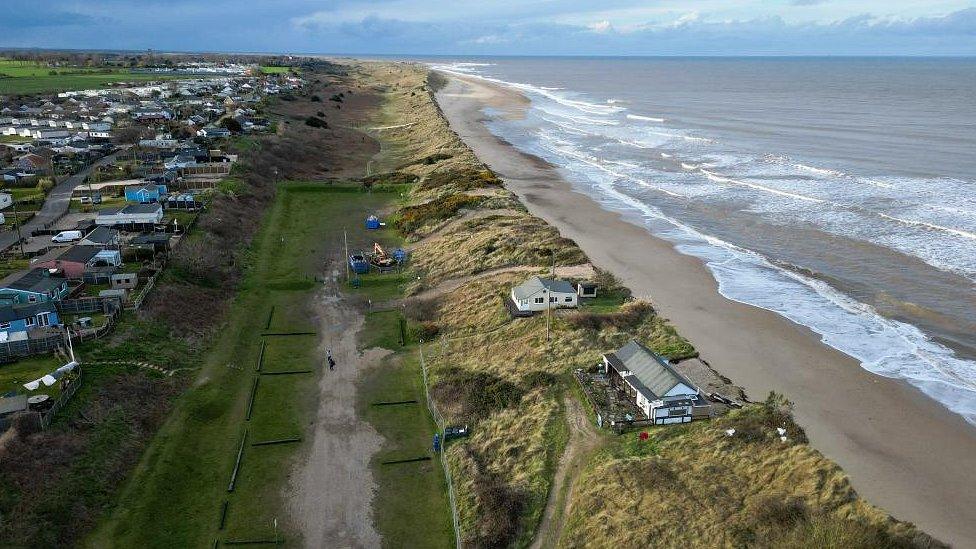
- Published31 December 2022
